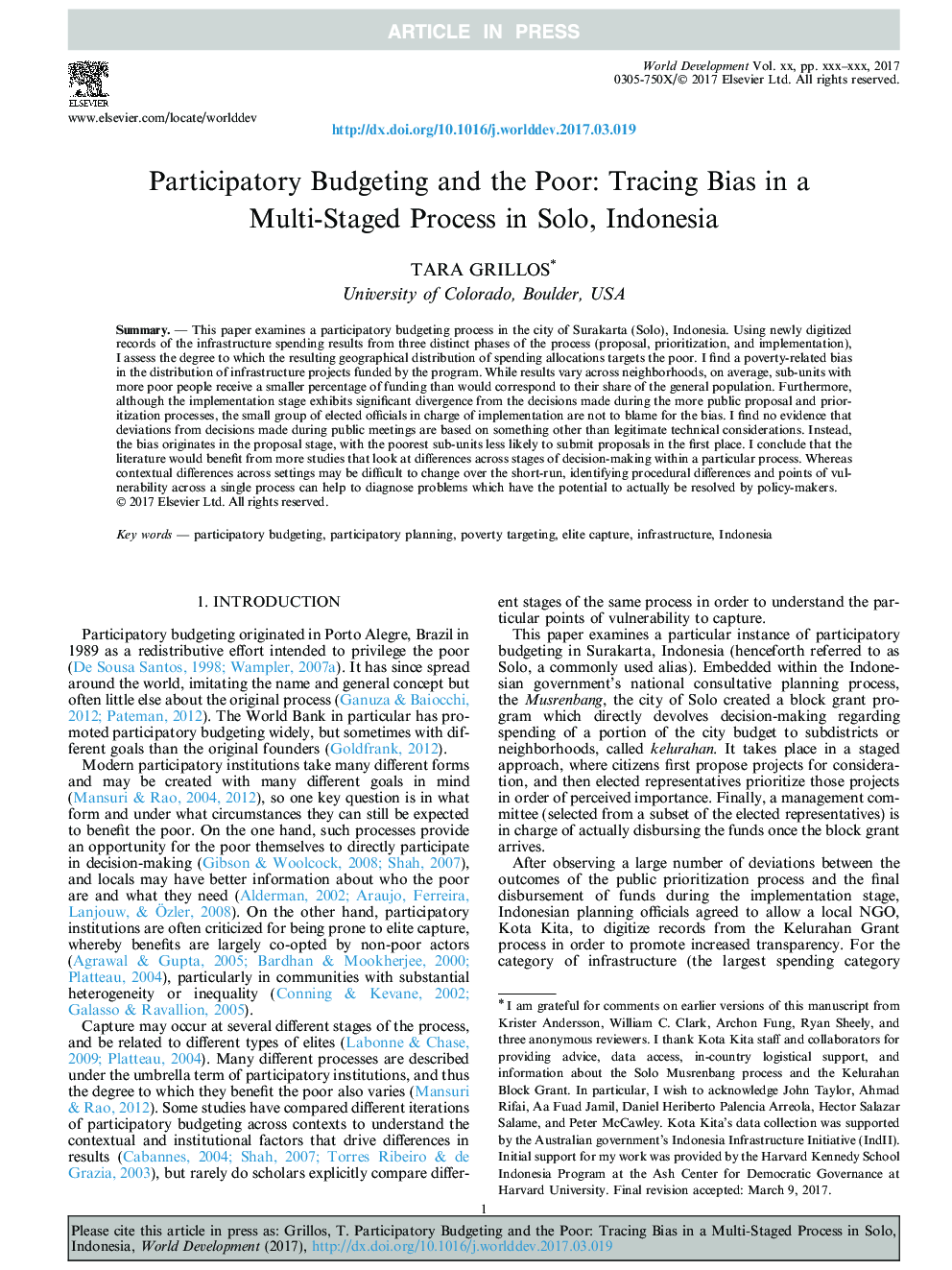| Article ID | Journal | Published Year | Pages | File Type |
|---|---|---|---|---|
| 5105066 | World Development | 2017 | 16 Pages |
Abstract
This paper examines a participatory budgeting process in the city of Surakarta (Solo), Indonesia. Using newly digitized records of the infrastructure spending results from three distinct phases of the process (proposal, prioritization, and implementation), I assess the degree to which the resulting geographical distribution of spending allocations targets the poor. I find a poverty-related bias in the distribution of infrastructure projects funded by the program. While results vary across neighborhoods, on average, sub-units with more poor people receive a smaller percentage of funding than would correspond to their share of the general population. Furthermore, although the implementation stage exhibits significant divergence from the decisions made during the more public proposal and prioritization processes, the small group of elected officials in charge of implementation are not to blame for the bias. I find no evidence that deviations from decisions made during public meetings are based on something other than legitimate technical considerations. Instead, the bias originates in the proposal stage, with the poorest sub-units less likely to submit proposals in the first place. I conclude that the literature would benefit from more studies that look at differences across stages of decision-making within a particular process. Whereas contextual differences across settings may be difficult to change over the short-run, identifying procedural differences and points of vulnerability across a single process can help to diagnose problems which have the potential to actually be resolved by policy-makers.
Related Topics
Social Sciences and Humanities
Economics, Econometrics and Finance
Economics and Econometrics
Authors
Tara Grillos,
